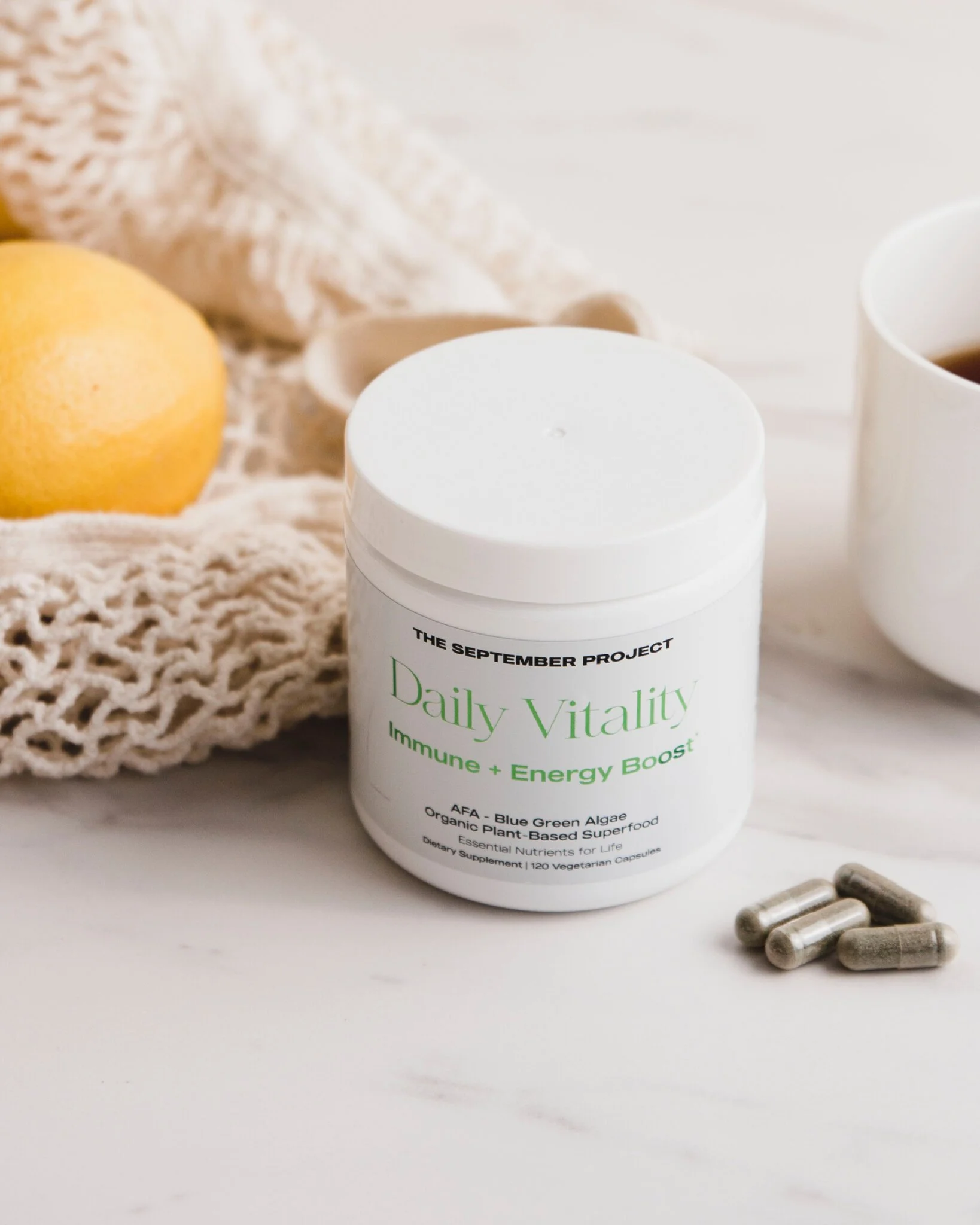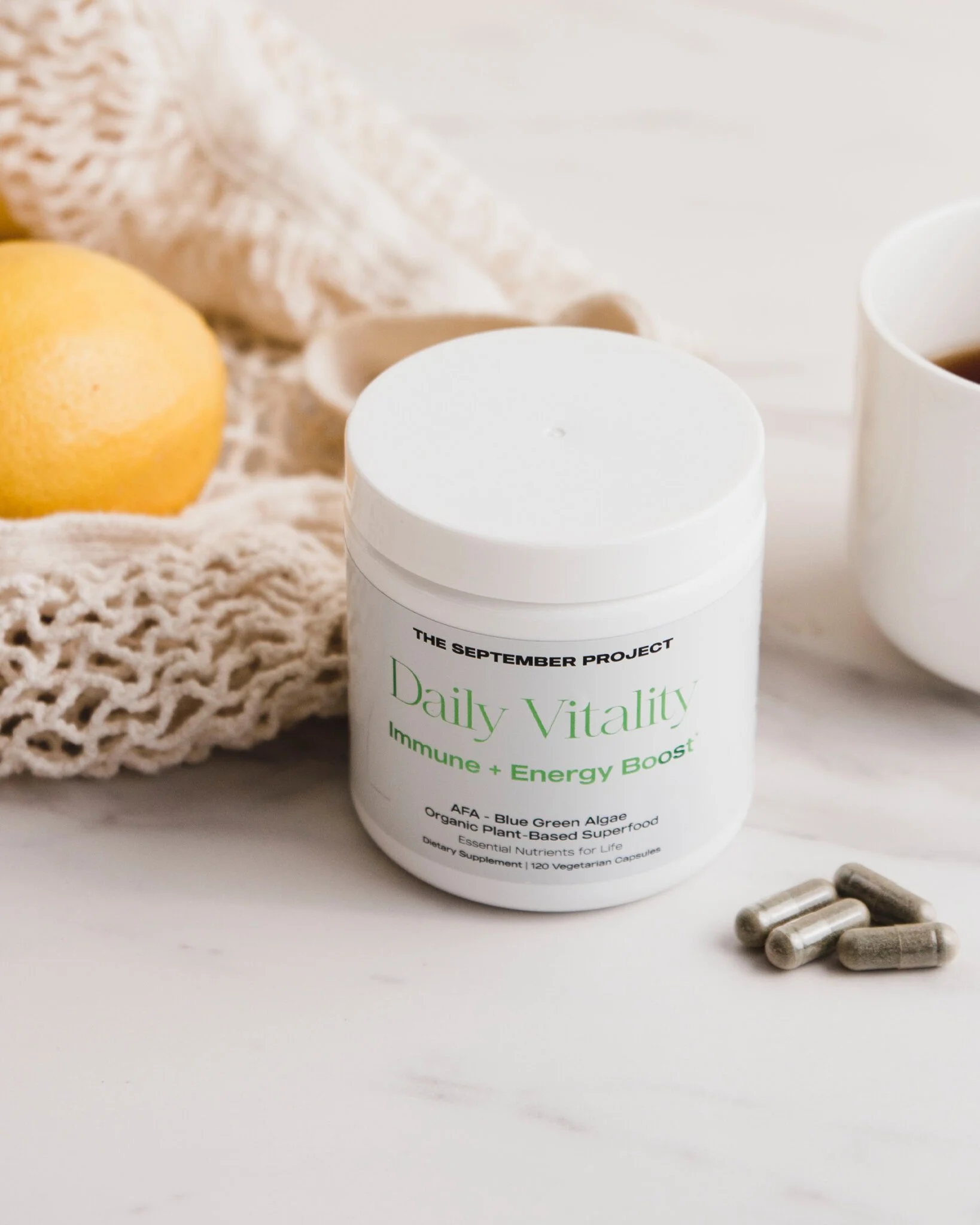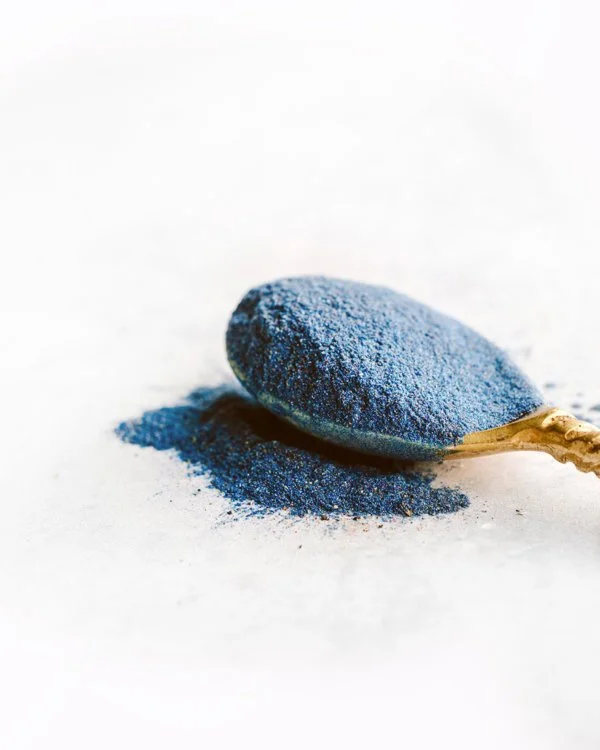What’s The Best Supplements For Gut Health?
Confused about what supplements are best for gut health? With so much information online about different supplements to choose from and options on the market, it can be overwhelming and tricky to be sure about what supplements are best for a healthy gut.
If you’re wondering how to select the right supplements for you, keep reading for details about digestive health supplements that actually work. Of course depending on your personalised gut health symptoms and overall health condition, we always recommend talking to a professional for a personalised diagnosis and plan. But it’s helpful to have a basic understanding of what each one is and what it’s used for.
Turns out, “trust your gut” isn’t just a phrase—it’s also great advice for your overall wellness. Your gut health affects pretty much everything in your body. It’s also affected by almost everything you do to your body. The best supplements for gut health support good gut bacteria, boost your immunity and help you get more nutrition out of your food.
So here’s our guide to the best supplements for gut health. In no particular order, here’s some of the best supplements we recommend that are good for your insides.
Supplements that support digestion
• Digestive enzymes
Digestive enzymes help break down and digest food. When the body’s digestive enzymes are lacking – whether due to stress, inflammation, or another reason – some practitioners provide them as a temporary fix to help with digestion or break down hard-to-digest foods. Digestive enzymes can be derived from fruit isolates, animals, or plants. These supplements can include any combination of enzymes, including proteases to break down proteins, lipases to break down fats, and amylase and other enzymes that help break down carbohydrates. Another digestive enzyme commonly used as a supplement is lactase, which aids the digestion of lactose, the sugar found in milk.
• Betaine HCL/pepsin
This supplement increases the amount of hydrochloric acid in the stomach to help break down food. This supplement must be taken with some form of protein, which is why pepsin (an enzyme that breaks down protein) is often included.
Betaine HCL/pepsin is used for low stomach acid. This supplement must only be taken under the supervision of a medical practitioner as there are many contraindications. In particular, individuals with ulcers, those who take anti inflammatory drugs, or anyone who experiences a burning sensation when using should not take this supplement.
• Digestive bitters
Bitters refer to herbs (such as dandelion root) with a bitter flavor. These stimulate the body’s natural digestive juices and production of stomach acid. The Standard American Diet pays little attention to bitter flavors; therefore, digestive bitters are more commonly supplemented. Bitter flavors can also curb sugar cravings and balance blood sugar.
• Ox bile
This supplement aids in the proper digestion of fat and supports nutrient absorption. It’s often recommended for those who’ve had their gallbladder removed and require extra support to digest high-fat foods.
Supplements that support healthy gut flora
• Fish oil
Fish oil has been linked to a diverse and healthy gut microbiome. It also has anti-inflammatory benefits that can help heal the gut. The omega-3 fatty acids found in fish oil are essential for the body, so if they’re not consumed in the diet, supplements may be recommended.
• Prebiotics
Prebiotic fiber is food for bacteria. Healthy bacteria promote a healthy gut! Prebiotics are found in many vegetables, but some individuals may prefer to supplement if they have a hard time getting enough fiber in their diet. Prebiotics can be irritating for individuals with small intestinal bacterial overgrowth (SIBO) or irritable bowel syndrome (IBS).
• Psyllium husk
This prebiotic fiber originates from the Plantago ovata plant. It’s bulk forming, meaning it can help with constipation by making stool easier to pass. As with all fiber supplements, it should be taken with plenty of water.
• Probiotics
Probiotics can be great for maintaining a healthy gut to protect against infection or rebuilding it after taking antibiotics or having some type of disturbance. Diversity is key, so the more variety in the strains, the better. The amount and type of probiotics to take can vary based on why a person is taking them, so it’s always best to consult a doctor before starting probiotics.
• Vitamin D
This fat-soluble vitamin helps maintain a healthy, balanced gut microbiome. It may also guard against colon cancer. To enhance absorption of this vitamin, it should be taken with a meal or snack containing dietary fat.
Daily Vitality Blue Green – Algae (AFA)
Daily Vitality contains the most nutrient dense superfood on the planet, Aphanizomenon flos-aquae (AFA) Blue-Green micro-algae. This new super food that contains more protein and chlorophyll than any other food source also has an abundance of vitamins, minerals, phytonutrients and more. AFA grows only in the wild and is far superior to any other algae on the planet. It is nature’s perfect food.
The high amount of chlorophyll present in AFA stimulates oxygen flow throughout the body helping the body detox and eliminate toxins, to ensure maximum absorption of nutrients in the digestive tract.
You may have heard of spirulina, chlorella,wheatgrass and other forms of algae, but this Blue-Green micro-alage AFA used in Daily Vitality surpasses the ‘green supplements’ trend, by supporting gut health, and those who are in drastic need of nourishment.
Supplements that nourish the gut lining
• L-glutamine
L-glutamine is an amino acid used as a building block for repairing a compromised gut. It can help nourish and rebuild the gut lining.
• Methylsulfonylmethane (MSM)
MSM is active sulfur, a mineral that can help reduce inflammation and rebuild tissue. Some practitioners prescribe MSM to help with leaky gut.
• Mucilaginous herbs
As the name might imply, these are typically herbs that have a mucus-like quality. They swell in water and can be gel-like, which can help with inflammation of the digestive tract. Mucilaginous herbs are used to help move stool or soothe irritation. Examples include slippery elm, aloe vera, marshmallow root, and plantain. Note that aloe latex and whole-leaf aloe extracts should be avoided as they may have carcinogenic properties.1
• Magnesium
This supplement can help with detoxification. Magnesium is often paired with glycinate, an amino acid that can make it easier to absorb and assimilate. Magnesium oxide softens stools. A popular natural remedy for constipation is milk of magnesia.
• Daily Balance – Antioxidants
Antioxidants can work their antioxidant magic on the lining of the gut, protect the cells lining the gut by controlling inflammation, and help support the growth of healthy bacteria. They also magnify the effects of other gut-healing strategies like prebiotics and probiotics, so they’re a valuable addition to a gut-healing program.
Daily Balance contains a unique extract, a blue pigment called phycocyanin. One way that Phycocyanin antioxidants can be beneficial to the gut is through protecting the lining of the gut. The cells lining the gut, called epithelial cells, have a tough job: they have to let the good stuff (like nutrients) into your bloodstream, but keep out everything that doesn’t belong (whether it’s actively bad stuff like dangerous bacteria or just food that hasn’t been digested yet).
Daily Balance can help protect the cells lining the gut in ways that might be particularly important for people with inflammatory gut conditions or serious infections. This is a huge benefit, because problems with the lining of the gut are involved in the development of autoimmune diseases and other inflammatory conditions.
The gut flora, aka the gut microbiome, gut biome, or gut microbiota, refers to the collection of friendly bacteria that live in your gut. Dietary polyphenols (one specific type of antioxidant, found mostly in Daily Balance) have beneficial effects on the gut flora:
– Polyphenol antioxidants can encourage helpful bacteria to grow.
– Polyphenol antioxidants can also discourage dangerous bacteria. Unfortunately, your gut also plays host to bacteria that can be dangerous.




